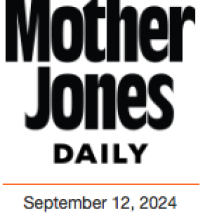
You’ve just delivered your baby in the hospital. You're exhausted, but it's also one of the happiest moments of your life. Then, while cradling your newborn, you get horrifying news: Your urine tested positive for meth. Or opiates. Or cocaine. But the problem is that you haven’t used any of those drugs.
For many, this isn’t just a hypothetical scenario; it’s a terrifying reality. In my latest story for The Marshall Project, co-published with Mother Jones, I found that hospitals across the US are screening pregnant patients using drug tests that have false positive rates as high as 50 percent. Hospitals are then reporting false positive results to child welfare authorities, leading to investigations and removals of newborns from their families. In several cases, police are involved in the forced separation of parents from their children.
I first learned about this issue after hearing from a mom who had screened positive for meth at the time of her child’s birth, a result caused, she said, by her prescription for labetalol, one of the most commonly prescribed blood pressure medications for pregnant women. As a result of the positive screening, child welfare authorities put her newborn in foster care.
At first, I was horrified by her story, and also skeptical. How could such a widely used medication trigger a positive on a drug test? Why hadn’t I heard about this before? But as soon as I interviewed a toxicologist, I learned this mother was far from alone. We found that every year, tens of thousands of babies are reported by hospitals to child welfare authorities for having been allegedly exposed to substances, without any guarantee that the tests were accurate. In 2022 alone, more than 6,000 babies were removed from their families.
Our story—out now—examines how easily false positives can occur inside labor-and-delivery units, and how quickly families can get trapped inside a system of surveillance and punishment. And be sure to listen to our collaboration with Reveal, where you can hear from the women themselves in their own powerful words.
—Shoshana Walter
